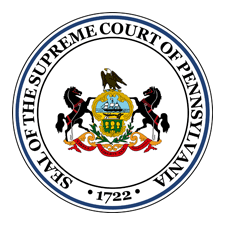This was a consumer class action in which the consumer alleged that Erie collected premiums for the time period before life insurance coverage went into effect.  In particular, the action alleged that the insurance policy did not take effect until it was delivered to the insured, but that Erie received premium payments from consumers covering days or weeks before policy delivery, when no insurance was in effect.  The action settled in 2005, with consumers receiving either a cash payment or extended and increased death benefits.
Category Archives: Uncategorized
In The News
Bally’s Total Fitness
This case is a consumer class action brought on behalf of individuals who Plaintiffs allege were subjected to Defendants’ violations of the Pennsylvania Health Club Act, which regulates health clubs operating within the Commonwealth of Pennsylvania, and the Pennsylvania Unfair Trade Practices and Consumer Protection Law, which prohibits unfair or deceptive acts or practices in the conduct of any trade or commerce.
Plaintiffs allege that Defendants sell contracts for health club services to Pennsylvania consumers that are in material violation of the HCA because Defendants impose initiation fees that are not reasonably related to Defendants’ costs for establishing the initial health club membership.
After many briefings and hearings a settlement was reached on March 28, 2012.
Bally’s – Order – Denying Motion to Dismiss
In The News
Farina v. Nokia Inc., et al.
The past 15 years have seen cell phone use evolve from a mere convenience to an all out necessity.  Increased usage without proper testing of the required equipment has led to adverse reactions within the makeup of the human body.  The biological harm is further manifested when a unwitting person talks on their cell phone without the use of a proper headset.  For close to 40 years it has been widely known that exposure to RFR, within the frequency common to cell phones, can cause adverse biological effects due to such exposure.  Scientific studies dating back to the early 1920’s are more reinforcement that these large corporations like Nokia, LG and Motorolla ignored the warning signs that cell phones posses and marketed them to consumers anyway.
This suit seeks to acquire 1 handsfree headset for all consumers who did not receive one with their original purchase.  It also seeks statutory damages on behalf of each class member for receiving less then what they paid for.  While this case may last many years it is hopeful that a resolution can be reached before anymore people use a cell phone without the proper protection.
Complaint: Cell Phone Litigation
In The News
General Motors Plenum
This suit was initiated by purchasers of GM automobiles equipped with the 3800 series engine (VN K-RPO L36).  The engine powers a multitude of GM cars  engine was fitted with a faulty stove pipe manifold that lead to an increased loss of coolant, premature internal engine wear, and/or internal engine problems.  These cars were purchased from 1995 through 2003, and included but not limited to the   Relief will be sought for not only a replacement manifold but coverage of any and all inconsequential and/or substantial damages.  To view the Complaint and other related documents please click below.
Buick:  Riviera, LeSabre, Park Avenue, & Regal
Chevrolet:  Lumina & Monte Carlo
Oldsmobile:  Intrigue, Ninety-Eight & Eighty-Eight
Pontiac:  Bonneville & Grand Prix.
In The News
U.S. Bank
US Bank is a national provider of credit cards and other financial services directed at consumers through various forms of solicitation.¬†¬†Each card was issued with specific terms and agreements, however US Bank decided the terms were not sufficient and so they enacted a ‚Äúchange in terms‚ÄĚ, specifically¬†altering way APR was calculated.¬†¬†As a result US Bank cardholders have brought suit for violations of the Truth in Lending Act which mandates that credit card solicitations disclose, clearly and conspicuously, all required cost of credit information.¬†¬†Their TLA violations include a lack of disclosure that APR was not determined by calculating ‚ÄúPrime +1%‚ÄĚ, but instead by adding a ‚Äúmargin‚ÄĚ to the prime rate, ‚Äúmargins‚ÄĚ range from 9.99% for purchases to 14.99% for cash advances.¬†¬†Additionally their ‚Äúchange in terms‚ÄĚ took on a more deceptive role allowing for US Bank to conduct a¬†subjective¬†review of a cardholder‚Äôs credit score or report¬†¬†in order to adjust (raise) their APR.¬†¬†The suit seeks damages both actual and treble along with restitution of the revenue US Bank attained illegally.
In The News
Continental Tires
US Bank is a national provider of credit cards and other financial services directed at consumers through various forms of solicitation. Each card was issued with specific terms and agreements, however US Bank decided the terms were not sufficient and so they enacted a ‚Äúchange in terms‚ÄĚ, specifically altering way APR was calculated. As a result US Bank cardholders have brought suit for violations of the Truth in Lending Act which mandates that credit card solicitations disclose, clearly and conspicuously, all required cost of credit information. Their TLA violations include a lack of disclosure that APR was not determined by calculating ‚ÄúPrime +1%‚ÄĚ, but instead by adding a ‚Äúmargin‚ÄĚ to the prime rate, ‚Äúmargins‚ÄĚ range from 9.99% for purchases to 14.99% for cash advances. Additionally their ‚Äúchange in terms‚ÄĚ took on a more deceptive role allowing for US Bank to conduct a subjective review of a cardholder‚Äôs credit score or report in order to adjust (raise) their APR. The suit seeks damages both actual and treble along with restitution of the revenue US Bank attained illegally.
In The News
Title Insurance Cases
The defendant companies are:
- Chicago Title Insurance Company
- Conestoga Title Insurance Company
- Guarantee Title and Trust Company
- Old Republic National Title Insurance Company
- Stewart Title Guaranty Company
In The News
Alexico Corporation
This consumer class action arises out of Defendants‚Äô illegal sale of ‚Äú‚ÄėPremium¬†Care‚Äô Theft-Gard‚ÄĚ (‚ÄúPCTG‚ÄĚ). The PCTG is an aftermarket product distributed, sold and¬†administered by Defendant Alexico Corporation (‚ÄúAlexico‚ÄĚ). It is then sold directly to¬†consumers by the remaining Defendants, each of which is a¬†Pennsylvania¬†car dealer who eitherbrokers the sale on behalf of the consumer or as Alexico‚Äôs ‚ÄúTheft-Gard Representative.‚ÄĚ The¬†PCTG itself includes the etching of an arbitrary number into the windows of the vehicle to¬†purportedly deter theft while offering a $3,000 indemnity benefit if the covered vehicle is stolen¬†and not recovered. Plaintiff herein contends that the PCTG is insurance that is illegally sold by¬†Defendants, who have not registered as insurance agents or submitted the PCTG to the Insurance¬†Department for rate review and approval. In addition, Defendants misrepresent the PCTG to be¬†a form of ‚Äúwarranty,‚ÄĚ but they fail to include the required disclosures under the Magnuson-Moss¬†Warranty Act (‚ÄúMMWA‚ÄĚ), and thereby violate that Act if the PCTG is considered to be a¬†‚Äúwarranty‚ÄĚ or ‚Äúservice contract‚ÄĚ within the meaning of the MMWA. Regardless of its¬†characterization, the PCTG, as marketed and sold by Defendants, is an unfair and deceptive act¬†or practice.
Complaint: Alexico Arbitration Complaint
In The News
Commonwealth Financial Systems
Court Decisions : CFS РOrder Certifying Class ; CFS РOrder of Preliminary Approval of Settlement
In The News
ACB Receivables Management
Complaint: ACB РClass Action Complaint
Court Decisions : ACB РClass Certification Approval







 Michael D. Donovan Selected to Pennsylvania Super Lawyers 2004-2025
Michael D. Donovan Selected to Pennsylvania Super Lawyers 2004-2025